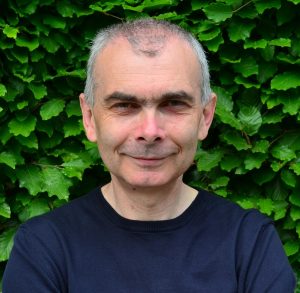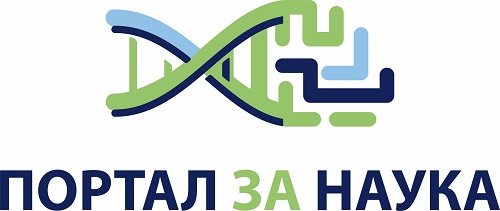Professor Lyudmil Antonov
Professor Lyudmil Antonov obtained a master’s degree in Organic and Analytical Chemistry in Faculty of Chemistry of Sofia University St. Kliment Ohridski. Since 1994, prof. Antonov has climbed the academic ladder, and in 2020 he became a professor of Physical Organic Chemistry and Organic Analytical Chemistry at the Institute of Organic Chemistry at Bulgarian Academy of Sciences. His international experience includes scholarships from Free University of Amsterdam, Humboldt University of Berlin, Kansai Centre, Free University of Berlin, etc. Prof. Antonov has been often invited as a guest lecturer, most recently at Scuola Normale Superiore di Pisa. At the end of 2019, he was laureate of Mare Balticum Lectures, dedicated to the 600th anniversary of University of Rostock, Germany, presenting series of lectures on the topic Molecular Devices and Tautomerism. Prof. Antonov shares his knowledge and skills as a lecturer at Faculty of Chemistry of Sofia University St. Kliment Ohridski, University of Forestry, and Institute of Organic Chemistry with Centre for Phytochemistry to BAS within several international scientific schools. Being a preferred tutor of graduates and doctoral students, prof. Antonov helps 7 young scientists to obtain scientific degree.
 Prof. Antonov is the editor of 2 books (published by Wiley-VCH), 5 chapters of books and 122 publications of which: 111 – in impact journals, 3 – in reputable international journals without impact factor and 8 – in local journals and conference proceedings. His citations exceed 2,300. Prof. Antonov has participated in over 121 national and international conferences and 16 lectures at foreign universities. His rich scientific experience gives him the opportunity to be a member of a scientific jury and to review scientific journals and projects. The main research interests of Prof. Antonov are in the field of analytical chemistry, quantum chemistry, physical organic chemistry, chemistry of dyes and supramolecular chemistry.
Prof. Antonov is the editor of 2 books (published by Wiley-VCH), 5 chapters of books and 122 publications of which: 111 – in impact journals, 3 – in reputable international journals without impact factor and 8 – in local journals and conference proceedings. His citations exceed 2,300. Prof. Antonov has participated in over 121 national and international conferences and 16 lectures at foreign universities. His rich scientific experience gives him the opportunity to be a member of a scientific jury and to review scientific journals and projects. The main research interests of Prof. Antonov are in the field of analytical chemistry, quantum chemistry, physical organic chemistry, chemistry of dyes and supramolecular chemistry.
In 2019, he obtained funding under National Science Programme Excellence Innovation and People for Development of European Science for its T-Motors project. The project was launched on 1 May 2020. It will last 60 months. During that period, the budget provided by Research Fund is BGN 1,350,000.
What can we expect from the project?
The existing molecular motors are driven either by light or chemicals. Their action in solution is caused by certain incentives (change of pH, oxidation / reduction, irradiation with UV light, etc.) and is based on elementary switching steps, such as isomerisation around a chemical bond (for single molecular motors) or a set of binding / non-binding interactions in mechanically interlocked supramolecules. From a technological point of view, the most suitable molecular motors are the electric ones (through the tip of scanning tunnelling microscope) or light-driven motors.
The fact that the operation of the motor is a sequence of single switching steps allows for molecular design either by upgrading existing ideas or by developing new concepts that bring new benefits.
The aim of this project proposal is to create a prototype of molecular motor (T-Motor), which is based on proton transfer at a long-distance in the stator, where the rotational motion is performed as consecutive proton transfer (PT). The use of tautomerism as a driving force is a completely new conceptual idea in molecular machines. Depending on the mechanism of PT simple moves, two possible motors will be considered: with PP in agitated state (powered by light) or in main state (powered by external electric field). The first motor is based on the existing fundamental knowledge of agitated PT, while the second has not even been described as an idea up to now. The one-way rotation of the motor will be achieved by introducing chirality into the rotor.
This high-risk and potentially highly profitable study includes theoretical modelling, organic synthesis of the most promising structures, and experimental study of their properties in solution. The expected results will have an important effect on the development of molecular motors and will be used as a platform for a future ERC project aimed at the design of nano-vehicles.

 Previous Post
Previous Post Next Post
Next Post